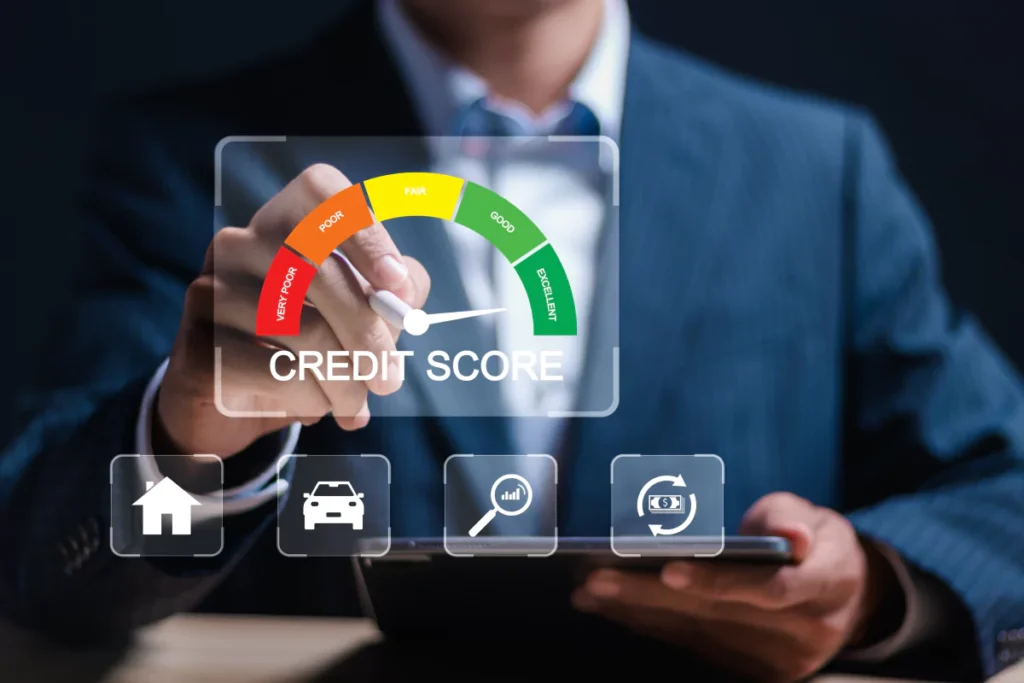Knowing how to save money for future needs and wants is an important aspect of financial wellness. But what if you wanted to make a large purchase which required more funds than the cash you’ve put aside?
The solution for most people is to borrow the money they need from a financial institution.
And that’s where a credit score factors in.
Credit Scores and Why They Matter
Borrowing money isn’t in itself bad. As a matter of fact, it can be crucial in helping one obtain big-ticket items like a home or a car, pay university tuition fees or start a business. Uncontrolled borrowing, however, which can result in high debt, should be avoided.
In any case, the big difference between borrowing money from friends or family and borrowing from financial institutions like banks, credit unions or finance companies is that the latter group will usually measure your creditworthiness — i.e., your reliability in paying money back — before making any lending decisions. This is done by scrutinising your credit score.
In a nutshell, a credit score is a three-digit number, usually between 300 and 850, that provides a general picture of your financial health and credit risks.
Many things can affect your score, including the number of bank accounts you have, your total debts as well as your repayment history. Even unpaid parking tickets can affect your rating.
But what’s most important to remember is that a high credit score (700 and above) is good, and makes you more likely to be considered worthy of loans, favourable interest rates and eligible for various other financial services and products. Conversely, a low credit score (600 and below) can make you appear risky to financial institutions.
This not only means that a low score could hurt your chances of borrowing money, but also that you might find yourself paying higher insurance premiums or facing a harder time renting a home. You could even miss out on career opportunities.
Thankfully, the good news is that individuals with low credit scores can improve their creditworthiness.
Do’s and Don’ts of Building a Good Credit Score
To be clear, banks and other established financial institutions aren’t responsible for your credit rating. Rather, an individual’s score is usually determined by independent credit bureaus or agencies tasked with collecting and analysing consumer information.
In the United States and the United Kingdom, for example, calculations are carried out by three agencies: Equifax, Experian and TransUnion. Meanwhile, a country like Nigeria has three major licensed credit bureaus (CreditRegistry, CRC Credit Bureau and First Central Credit Bureau), while Ghana relies on a credit reporting system that is regulated and supervised by the Bank of Ghana through the Credit Reporting Act of 2007.
Regardless of the agencies and systems employed, in any event, it’s crucial to remember that acquiring a good credit score can involve simple steps.
Here are some to especially take note of:
- Pay Bills on Time
Like unpaid parking tickets, missing even just a few bill payments can negatively impact your credibility. So, always seek to be timely with your payments.
- Settle Small Outstanding Debts
If you have the means, pay off smaller debts in full. This cuts your financial obligations and makes you appear more worthy of credit to lenders.
- Don’t Close Credit Card Accounts
Even if you aren’t using a particular credit card, keep the account running. This is because closing an account can shorten and/or erase your credit history, thereby damaging your score.
- Apply For Loans and Credit Only When You Need It
Regularly applying for credit increases scrutiny of your financial situation and heightens the risk of rejections, which can lower your score dramatically. As such, determine the loans that suit you best and only apply for them when you have to.
- Dispute and Correct Inaccurate Credit Information
You should review your credit report from time to time and seek to correct false and/or fraudulent information that could hurt your score. Take note that most credit agencies allow for the filing of disputes.
- Stay Abreast and Informed
Your credit score changes over time, which is why some people choose to engage independent monitoring services to observe and report on changes to their creditworthiness, such as after a debt is paid off. But it’s also just as important to keep learning about ways to improve your financial status.
One way to do this is via articles on financial content sites like Investopedia and the websites and blogs of reputable credit bureaus such as CreditRegistry Nigeria’s Blog, Experian’s Official Credit Advice Blog and the FICO Decisions Blog.
You could also look to improve your financial literacy through specialised programmes like FinGreen by QNET.
Designed specifically to address the current gaps in financial knowledge among vulnerable persons in developing economies, FinGreen aligns with the United Nations Sustainable Development Goals and Addis Ababa Action Agenda, and combines financial education with hands-on training and advocacy. This means that it’s focused on helping individuals enhance existing knowledge and skills, correct mistakes and overall, improve their financial present and future.
Towards Improvement
Remember, having a good to great credit score can make a huge difference to your financial health. Luckily, a less-than-perfect rating isn’t the end of the world. Changing your fate and taking charge of your finances is entirely possible. You just need dedication, the right attitude and the right knowledge.


